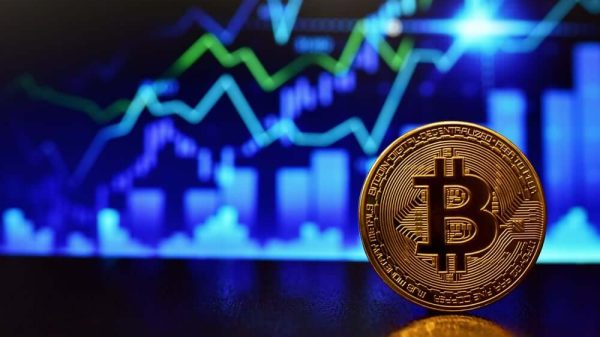Over the past 12 years, one party has repeatedly entertained demands from an extreme wing that pushed the U.S. government toward shutdown and to the brink of defaulting on the nation’s debt. One party has struggled mightily to form its own internal governing coalition, including as it elected and tried to keep a House speaker. And one party has engaged in the kind of public internecine feuding that calls into question its ability to run the country.
That one party, the Republican Party, is now headed for what would be an unprecedented move — the ousting of a speaker, just nine months into his tenure. So it seems valid to ask: Have Americans noticed? And do they care?
What’s evident is that these kinds of things have damaged the party in the past — at least temporarily — and could loom over voters’ decisions in the upcoming election. A prolonged battle to settle the question of which Republican will lead the party’s only lever of legislative power would add significantly to that problem for a party that has often proved ungovernable and politically incoherent.
But Americans have relatively short memories and often little interest in the complicated inner workings of Congress. That, combined with polarization, renders any political effect tough to discern. While the GOP is experiencing a run of bad elections, we don’t necessarily see the internal chaos registering in relative views of the two major parties.
Rep. Matt Gaetz’s (R-Fla.) decision to file a “motion to vacate” Monday seeking to remove House Speaker Kevin McCarthy (R-Calif.) is a culmination of years of GOP infighting. While motions to vacate have threatened previous GOP speakers and seemed to contribute to the resignations of Newt Gingrich and John Boehner, we’ve never seen a successful vote to remove a speaker.
McCarthy might survive for now — he signaled early Tuesday that the House would take up the issue in the afternoon — but Gaetz has said he’ll keep pressing. And McCarthy might ultimately need the votes of Democrats to survive, which could open up its own can of worms.
At least thus far, the drama over McCarthy’s speakership doesn’t appear to have registered with voters in a significant way.
After it took 15 ballots to elect McCarthy back in early January, polls showed a majority of Americans disapproved of how Republicans handled the process — 55 percent to 45 percent in a CBS News/YouGov poll, and 53-32 in a Quinnipiac University poll. A Marquette University Law School poll found that 58 percent of Americans said the speaker battle indicated Republicans couldn’t unite to govern effectively, while 41 percent disagreed.
Those numbers shouldn’t have been too surprising, given how poorly Americans generally judge Congress’s job performance. And weeks later, it didn’t seem to affect perceptions of the two parties.
Indeed, after years of the Republican Party’s generally being viewed somewhat more negatively than the Democratic Party, the parties’ images over the past year-plus have been remarkably similar. Polls also show Americans regard the parties as similarly extreme and similarly capable of governing.
If there’s one thing we’ve seen in recent years, though, it’s that certain events can serve as flash points that at least temporarily shift relative views.
Americans blamed Republicans significantly more than they did Democrats for shutdown and debt ceiling standoffs in 1995, 2011, 2013 and 2019. In nearly every case, polling showed a slight majority blamed Republicans, while around 30 percent or fewer blamed Democrats.
Many Republicans believed that the 1995-96 shutdown contributed to Bill Clinton’s easy reelection in 1996. Republicans also lost presidential elections after the 2011 and 2019 fights. The 2011 debt ceiling standoff led to a poll showing a stunning 77 percent said the tea-party-infused GOP wasn’t willing to compromise enough (compared to 58 percent saying that about Barack Obama). The 2013 debt ceiling fight sent the GOP’s image ratings to an all-time low.
As Senate Minority Leader Mitch McConnell (R-Ky.) recently said of shutdowns: “They never have produced a policy change, and they’ve always been a loser for Republicans politically.”
But there is plenty of disagreement about the actual electoral impact of the 1995-96 shutdown. And the GOP went on to win big after the 2013 battle anyway, as whatever concern existed about GOP brinkmanship gave way in 2014 to concerns about the botched rollout of Obamacare.
Even if there were lingering effects in those instances, polling after more recent fights has suggested the blame might be apportioned much more evenly. That was the case with the debt ceiling stalemate this year as well as the shutdown threat that was at least briefly averted over the weekend.
Precisely why that is — it’s difficult to say. Perhaps Americans are just that much more polarized than a decade ago. The GOP still took much more blame as recently as after the 2019 shutdown, but that was seemingly in part because it was an unpopular President Donald Trump leading the charge by seeking border-wall funding.
These fights may now be accepted as just the cost of doing business. But yet again, Republicans appear prepared to test the public’s patience and tolerance for political discord.
The real danger would seem to be in the uncertainty lingering into the election year and more permanently defining the GOP — which, given the unwieldy dynamics inside the House GOP, appears to be a distinct possibility.


































